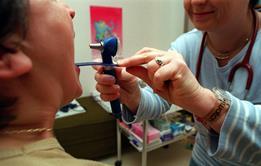If primary care trust managers, GPs or indeed anyone else thought the consultation document on commissioning accompanying the white paper would answer most of their questions about the new policy, they have now been disabused.
While PCT leaders warn of the potential for chaos during the transition period, senior GPs are attempting to reassure colleagues that their new commissioning responsibilities are not some Machiavellian scheme by the government to ensure politicians have someone else to blame when the effects of this age of austerity really hit the public sector. Royal College of GPs chair Steve Field pitched it to his members this week that this is the opportunity GPs have been waiting for to “at long last take centre stage in the running of the health service”.
Most PCTs will not be allowed to die a slow, lingering death and any GP who thinks there will still be a coterie local of managers to help them by 2013 should think again
The scales are starting to fall from GPs’ eyes. Watching PCT managers, GPs and other local stakeholders brainstorm in Birmingham last week about how the transition should work was fascinating. A lot of GPs are not really interested in commissioning. Others are (or accept the need to be) but the epic scale of what lies before them is only just hitting home. What will the management allowance buy them? How will they back-fill their clinical work while they are running around setting up consortia or attending meetings? Can they get away with working only with practices that they know already? What skills does an accountable officer need to have, where will they find one? How closely should the structure of a consortium, or the federation in which it might sit, resemble a PCT?
In the best PCTs, managers are on hand to help GPs do this thinking, or at least guide them in the kind of thinking they should be doing. Their motivation comes from an altruistic sense of vocation on the one hand - they do not want all their good work getting lost in two years of transition - and perhaps justifiably selfish too - there may be jobs on consortia for those who demonstrate they are indispensable.
Either way, there is no time to waste. Most PCTs will not be allowed to die a slow, lingering death and any GP who thinks there will still be a coterie local of managers to help them by 2013 should think again. All PCTs must have formal consultations with each member of staff by the end of September - the quicker fledgling GP consortia can mobilise to give PCTs an idea of what they intend, the more likely they are to be able to avail themselves of support while it is still on hand.
There is a fair bit of “the government will discuss with the British Medical Association how…” in the commissioning consultation document, which, history would suggest, could pre-empt a certain degree of tension.
But the BMA’s GPs committee is likely to accept the set-up plans for GP consortia, as long as they satisfy three tests: that members’ livelihoods won’t be negatively affected, that the governance and accountability are sound, and that the reforms are supported by their colleagues across the NHS.
And there’s the rub, at least potentially. Under the provider landscape outlined in another of this week’s consultations, GP consortia will be encouraged to be proactive shapers of what is meant to be a “market” in healthcare provision. This may mean taking on their hospital consultant colleagues, traditionally higher up the medical pecking order than family doctors, and challenging well-loved if poorly performing services.
The trouble is, neither hospital consultants nor GPs tend to be in favour of a marketised provider landscape, many wishing instead that they could return to the supposedly more integrated system that existed before the advent of the purchaser/provider split.
The government, and those managers who understand well that the transition starts now, need to convince doctors of all hues that integrated care and a “market” of providers do not have to be mutually exclusive.
Uncertainty still dogs PCTs during transfer of power

Major uncertainties about the rapid transfer of commissioning from primary care trusts to fledgling GP consortia could lead to chaos, managers have warned.
- 1
- 2
- 3
 Currently
reading
Currently
reading
There is no time to waste as GPs grasp the scale of the challenge

































No comments yet